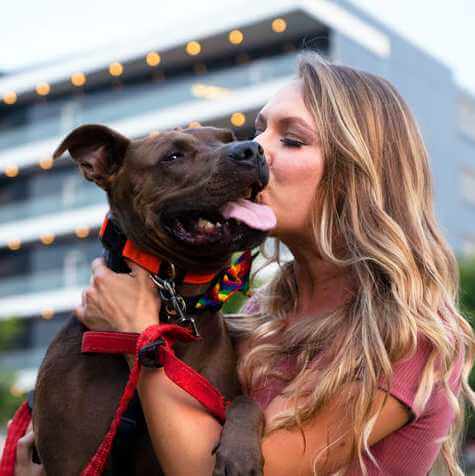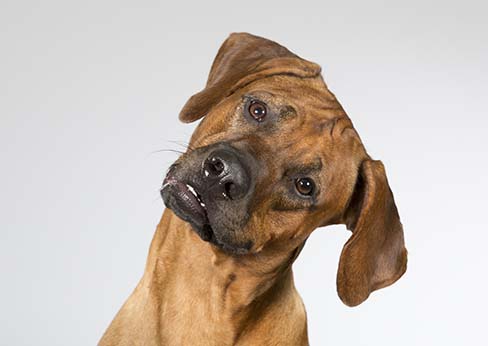Do dogs feel jealous?
While petting another dog have you noticed your own dog exhibiting some behaviors that look a little bit like jealousy? Well, you may have been right! While jealousy is usually considered to be human conduction, a recent study suggests that dogs do experience jealousy. In this experiment, Scientists observed 36 dogs’ reactions to their owners paying attention to an animatronic dog. Most dogs nudged their owners as if trying to get their attention, and some even growled and pushed the stuffed dog out of the way!
Another study had owners perform a variety of activities. They read a book, talked to a pumpkin and pet a stuffed dog who barked, whined, and wagged its tail. The results showed that dogs only reacted to the robot dog, and not because their owners were ignoring them! Because the owners were paying attention to what the dogs perceived to be another animal.
While this behavior can be cute and obnoxious at best, there can be cases where this jealously can lead to dangerous behavior. Watch for signs and find a trainer that has experience with these situations and can help you turn your dog’s unhealthy jealous behavior into healthy, happy behavior.
Do dogs feel guilt?
While your dog may have given you guilty-looking puppy dog eyes when you caught them going through the trash, research shows that dogs do not experience a sense of guilt. This study investigated 14 dogs who were presented with a treat then given a command to not eat the treat. The dogs were then observed to see whether they would listen to the owners and follow the command or disobey and eat the treat. The owners were instructed to act annoyed or disappointed, regardless of which action their dog took. In every case, even if the dog did not misbehave, he still “acted” guilty when the owner pretended to be upset. This experiment shows that the so-called guilty look was a response to cues from the owner rather than the appreciation of a misdeed.
Dr. Susan Hazel of the University of Adelaide agreed. “There have been a number of studies, and it’s pretty clear that dogs don’t feel or display guilt.”
Elaine Henley, an animal behaviorist, and lecturer in Scotland said that dogs could feel emotions but that emotions such as guilt were just human projections. “We don’t know if animals feel them and must be careful about attributing human emotions to dogs,” she said.
“The dogs in the videos don’t understand they have done wrong, so can’t be shamed into good behavior. Often, they are just as likely to go and do the same thing again. So when they look guilty, they are reacting to their owner’s behavior — the tone of voice, the gestures, maybe even the way their owners smell.”
Do dogs feel love?
Surely our dogs love us just as much as we love them? Right? Right?!
Author and animal expert Marc Bekoff suggests that strong emotions like happiness and love are what keeps social animals like dogs and humans together. It helps motivate the individuals in the group to protect and support each other, to remain a pack.
The caudate nucleus is the part of our brain that scientists believe is responsible for our feelings of love. In order to see if dogs had the same, or similar, part to their brains a recent study did an MRI scan on 12 dogs who were presented with different smells. According to this study, the dog’s caudate nucleus was at its maximum potential when presented with a scent of a familiar human.
Another study was done where 12 dogs were presented with 5 different scents, one being of their owner. An fMRI scan was done of the dogs while they were presented with the smells. The scans all showed activation in the caudate nucleus when the dogs were presented with the smell that resembled their owner. Again, it was the caudate nucleus that lit up. As you remember from earlier, this is shown to be active in people who are in love and acts as part of our mental reward systems.
Another similar study found that dogs release oxytocin when being pet or cuddled. Oxytocin is a chemical released by the brain when someone is happy and has been shown to help people form emotional bonds with others. The fact that dog’s brains released oxytocin in a similar manner suggests that dogs can indeed feel love for their owners.
Another study on German Shepherds and Border Collies concluded that a dog’s social behavior towards humans is influenced by the oxytocin system. This study took DNA samples from the dogs before and after they had an interaction with humans. The samples were then analyzed for the behaviors traits that were exhibited by the dogs towards the humans they interacted with. The study’s finding suggests that oxytocin receptor gene polymorphisms have an impact on proximity to unfamiliar humans and on how friendly the dogs were toward the human.
These studies show that many of the same systems are active when our dogs have interactions with us as the systems that are active in people who are in love. More research needs to be done on this topic, but this suggests that our dogs do love us and do not feel guilty about it!





